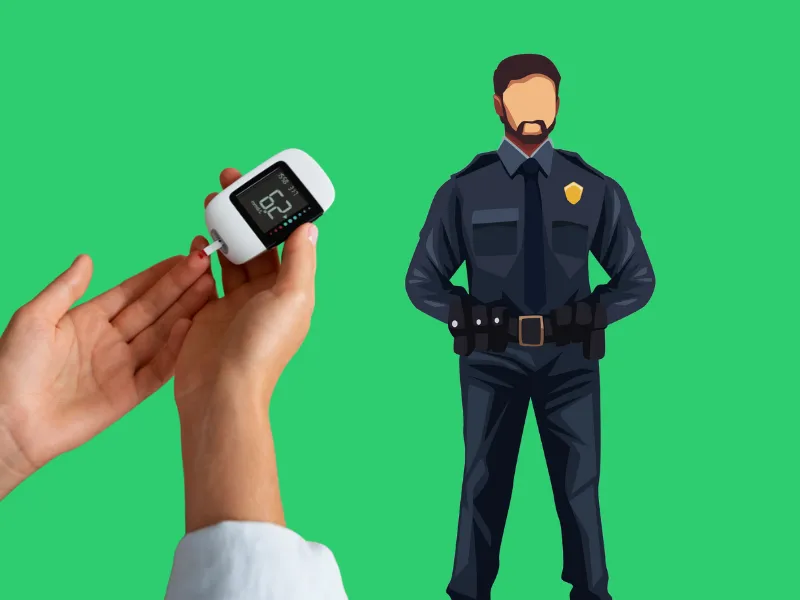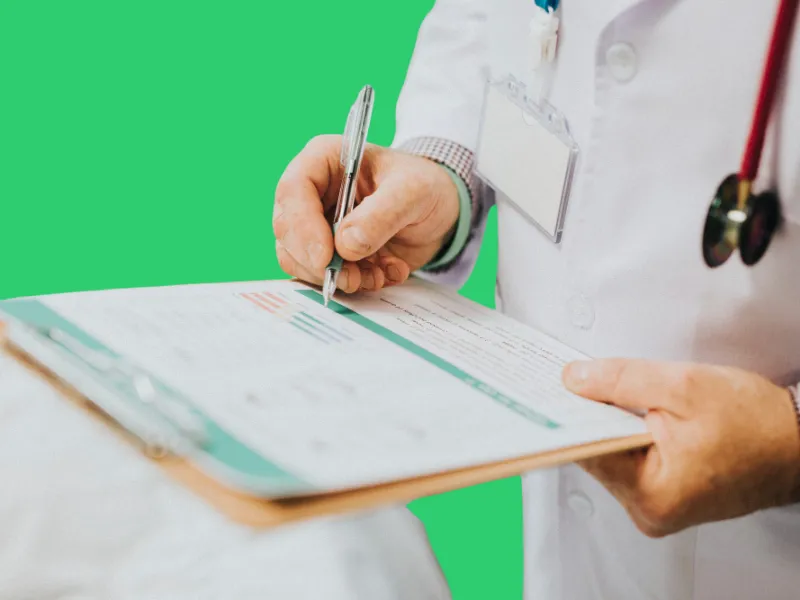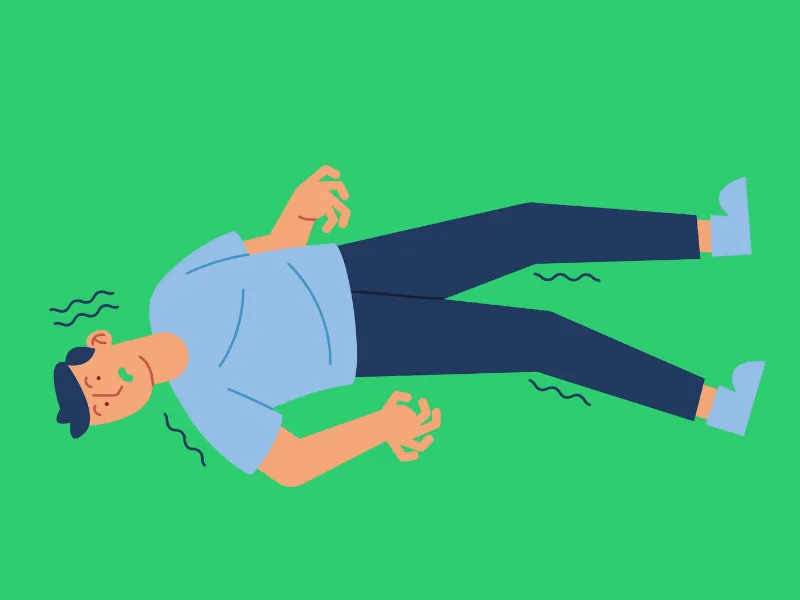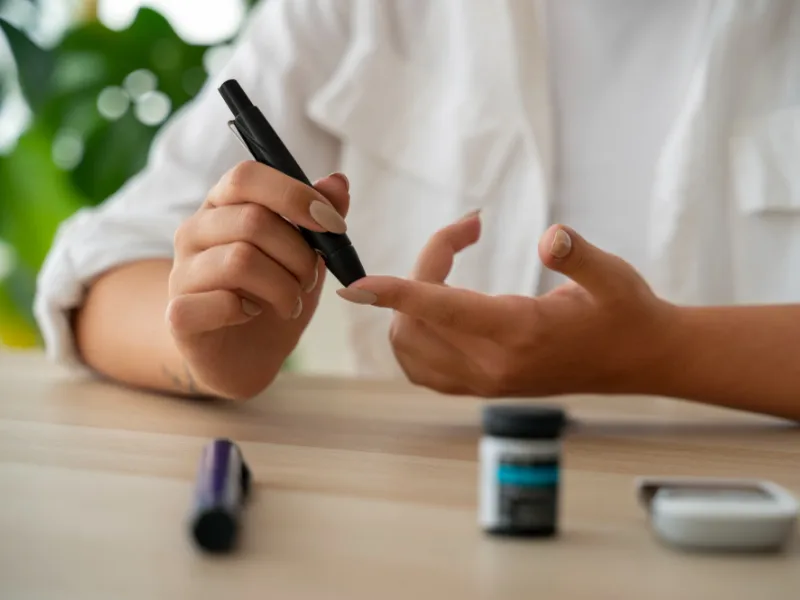Can You be a Police Officer With Diabetes?
Published: 13 Apr 2025
Can you be a police officer with diabetes, or will your condition hold you back, no matter how fit or dedicated you are? It’s a common worry for many applicants who’ve worked hard to control their blood sugar but fear medical rejection.
The truth? Diabetes doesn’t automatically disqualify you, but there are things you must know and prepare for. Keep reading to get clarity on what departments expect, what health benchmarks you must meet, and how real diabetic officers are making it work.
1- Can You Be a Police Officer With Diabetes?
Yes, you can! Whether you have Type 1 or Type 2 diabetes, you can become a police officer.
The key? You must show that your condition is well-managed and doesn’t interfere with your duties, like driving, handling weapons, or responding quickly in emergencies.
Managing diabetes with discipline is crucial, whether it’s your diet or using things like heated blankets safely.

2- Why Diabetes Used to Be a Concern for Police Jobs
In the past, diabetes was seen as a major disqualification for law enforcement jobs due to strict health standards and fears over hypoglycemia (low blood sugar) during duty.
According to the American Diabetes Association (ADA),
“Diabetes is not automatically disqualifying for employment in law enforcement or other public safety positions.”
2.1 The Old Concerns:
- Strict Standards: Many police departments once had rigid medical requirements, fearing that any health condition might interfere with an officer’s ability to respond quickly or handle stressful situations.

- Risk of Hypoglycemia: Low blood sugar can cause confusion, dizziness, and even fainting, especially if an officer is in the middle of a high-pressure situation like a chase or confrontation. This made diabetes a potential safety risk, not only to the officer but also to their colleagues and the public.

Thinking long-term about health and life goals? We also explored how diabetes can affect male fertility.
2.2 Real-Life Dangers:
Imagine an officer in the middle of a high-speed chase or an intense arrest; if their blood sugar drops too low, their judgment and reflexes might be impaired. That could put both the officer and others in harm’s way.
For years, these concerns led many departments to be cautious about hiring diabetics, with some even setting complete bans for officers with diabetes.
2.3 Changing Medical Understanding:
Fortunately, medical research and understanding of diabetes have come a long way. We now know that with proper management, diabetes doesn’t have to interfere with an officer’s ability to perform their duties.

Advances in insulin therapies, monitoring devices, and education have made it easier for officers with diabetes to stay safe and healthy on the job.
3- Medical Standards for Police Officers With Diabetes
Different countries have different medical standards for Police Officers with diabetes. But some of the most common are:
3.1 Fitness & Endurance Requirements
To join the police, you must pass standard physical fitness tests just like anyone else.
What You’ll Be Tested On:
- Running: Timed runs to assess speed and stamina
- Strength: Lifting, dragging, and physical tasks
- Endurance: Activities that test sustained effort
How Diabetes Comes In:
- Keep your blood sugar steady; spikes or drops can hurt your performance.
- Hypoglycemia during intense activity can be risky.
Quick Prep Tips:
- Check blood sugar before the test. If low, eat a fast-acting snack.
- Use a CGM to monitor real-time sugar changes.
- Stay hydrated and keep snacks handy just in case.
3.2 Medical Clearance and Reports
Before joining the force, you’ll need to prove your diabetes is under control.
You’ll Usually Need:
- Recent A1c Test: This test shows your average blood sugar (ideally ≤ 6.5%).
- Glucose Logs: Track your sugar levels over time.
- Doctor’s Report: Confirms you’re fit for duty and stable.
Why It Matters:
Departments need to know that your condition won’t affect your performance or safety on the job.
3.3 Ongoing Monitoring
Even after you’re hired, regular health checks are often required.
What to Expect:
- Routine Checkups: Your doctor must confirm you’re still fit for duty.
- Proof of Control: Some agencies ask for updated A1c or glucose logs.
- Tech Tip: A CGM (Continuous Glucose Monitor) helps track sugar in real-time, even during patrols.
Stay in touch with your doctor and keep your blood sugar steady. That way, you’ll keep meeting the medical standards for the job.
High-pressure jobs can be tough with diabetes. Here’s a look at using heat therapy for stress and pain relief.
4- Real-Life Stories of Police Officers With Diabetes
What Other Diabetics Say on Reddit…
- One user, who works as a border patrol agent, shared that despite diabetes being a concern, it was manageable with a good endocrinologist and consistent blood sugar monitoring.
They mentioned the importance of maintaining detailed health records, especially A1C levels. - Another user, a police officer, said managing Type 1 diabetes at work is not an issue as long as it’s well-managed.
They pointed out that their department only requires an annual check-up with an endocrinologist, but never asks for medical records. They recommended insulin pumps like the Omnipod for convenience. - Others echoed similar experiences, highlighting that Type 1 diabetes isn’t a disqualification for many law enforcement agencies, though it does require extra steps during the application process, such as proving the condition is under control.
- Some even mentioned seeing colleagues with insulin pumps or who have managed their condition for years without complications.
Overall, the consensus was that with proper management and support, a career in law enforcement is still very much possible for someone with Type 1 diabetes.
| 5- Tips to Manage Diabetes in a High-Stress Police Job |
|---|
Following are a few tips to manage diabetes in a high-stress police job.
Always carry glucose tablets, juice boxes, or a small snack in your vest, car, or pocket. These can help treat sudden low blood sugar (hypoglycemia) during patrols or emergencies. 
Pack your insulin, pills, glucometer, or CGM before every shift. Use a small pouch or diabetic belt to keep everything handy, even during foot pursuits. 
Teach your partner how to spot signs like confusion, shakiness, or slurred speech. It helps them respond quickly if you go low on duty.
If you tend to go low at certain times, try to schedule shifts when your energy and sugar levels are more stable. Many departments are open to adjusting shifts for medical reasons.
Continuous Glucose Monitors (CGMs) like Dexcom G6 or Freestyle Libre track your sugar 24/7 and send alerts to your phone or watch. |
6- Conclusion
So, guys, in this article, we’ve covered the question Can you be a Police Officer With Diabetes? in detail. From eligibility to real-life tips, it’s clear that diabetes doesn’t stop you from serving. But managing it well is key.
My recommendation? Stay on top of your health, use the latest glucose-monitoring tech, and never hesitate to ask for support from your doctor or your department. You’ve got this.
Know someone with diabetes dreaming of a police badge? Share this article, it might be the push they need.
7- FAQs
Yes, people with Type 1 diabetes can become police officers.
They just need to show they can manage their condition well, especially under stress.
Good blood sugar control and a doctor’s clearance are usually required.
Yes, rules can vary from one department to another. Some may ask for more medical reports or regular checkups. It’s best to check the policy of the specific department you’re applying to.
Not necessarily. Many departments allow insulin use as long as it doesn’t affect your performance.
You’ll just need proof that you can handle your duties safely.
Most departments ask for an A1c report, glucose logs, and a doctor’s fitness note. They want to make sure your diabetes won’t cause sudden problems on duty. Passing a physical exam is also part of the process.
Only if it happens often and puts your safety at risk. If you have good control and rarely get lows, you should be fine. Using a CGM (Continuous Glucose Monitor) can help avoid surprise sugar drops.
Yes, honesty is important. Telling your supervisors helps them support you if anything happens on duty. It also shows that you’re serious about safety for yourself and others.
Yes, but it might take extra planning. Night shifts can affect your sugar levels, so you’ll need to monitor them closely. Some officers adjust their meals, meds, and routines to stay in control.
It depends on the department and your health status. If your diabetes is well-controlled and you pass all physical and tactical tests, it’s possible. But elite units often have stricter medical rules.
Stress can raise or lower blood sugar, so yes, it matters. But many diabetic officers learn to manage both stress and sugar with the right tools. Apps, CGMs, and regular check-ins make a big difference.
Start by planning your meals and meds around your workout.
Check your sugar before and after training, and keep snacks nearby.
Staying consistent helps your body stay balanced during intense activity.
8- References
At MedicaWire, all medically sensitive content is reviewed by licensed healthcare professionals. Our team ensures that the information you read is accurate, up-to-date, and based on trusted medical sources.
Learn how we maintain high standards by reading our Editorial Policy.
📚 Sources
- The ADA. Law Enforcement Officers and Diabetes Discrimination
https://diabetes.org/advocacy/know-your-rights/law-enforcement-officers-and-diabetes-discrimination - The Diabetes Council. Can You Join The Police Force If You Have Diabetes?
https://www.thediabetescouncil.com/can-you-join-the-police-force-if-you-have-diabetes/ - U.S. Department of Justice – COPS Office
Health, Safety, and Wellness Program Case Studies in Law Enforcement
https://portal.cops.usdoj.gov/resourcecenter/Home.aspx?q=arrest/ric.php&page=detail&id=COPS-P332
ℹ️ Our Promise
MedicaWire follows strict sourcing guidelines and only references peer-reviewed studies, academic institutions, and reputable medical associations. We update content regularly to reflect new health information.

- Be Respectful
- Stay Relevant
- Stay Positive
- True Feedback
- Encourage Discussion
- Avoid Spamming
- No Fake News
- Don't Copy-Paste
- No Personal Attacks



- Be Respectful
- Stay Relevant
- Stay Positive
- True Feedback
- Encourage Discussion
- Avoid Spamming
- No Fake News
- Don't Copy-Paste
- No Personal Attacks




